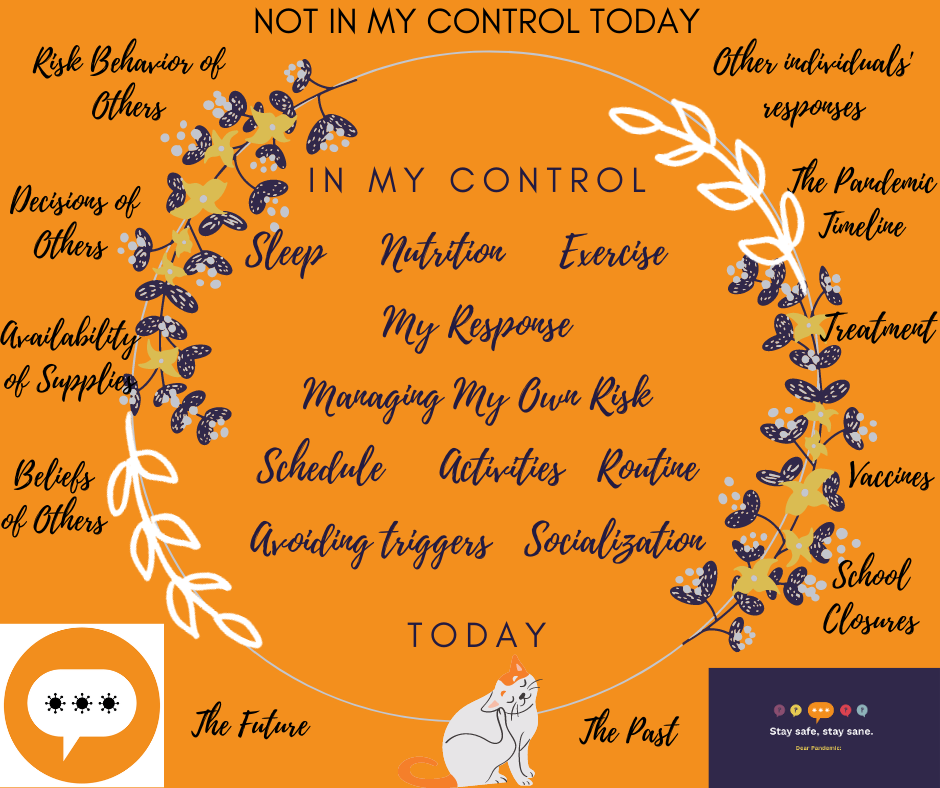A: Focus on what you can control and take it from there.
There is a lot to feel anxious about right now. A recent survey from the American Psychiatric Association (APA) suggests that nearly 2 in 3 respondents reported more anxiety this year than at the same time last year. And experts believe that uncertainty (the enemy of anxiety) about our future is contributing to an increase in anxiety symptoms among all of us, even those who have not previously experienced anxiety before. To help all of us work through this, here are five basic tips and finally a brief reference for what you can/cannot control.
1-Make sure you are getting enough sleep, hydrating, getting some physical activity, taking time to do something mindful (even just 5 breaths!) and eating well. Wake up at the same time every day and follow a schedule. Of course, connect with people too (virtually). Sounds basic, but not doing these things can be triggers for anxiety.
2-Notice your triggers-jot them down and think creatively about how to work through them. For example, if social media is triggering, you may consider avoiding/taking a break or limiting the amount of time you consume the news/other updates via social media. No more than an hour a day is a good rule of thumb.
3-Allow worry time. You may allow 30 minutes a day to just “feel all the feels.” Designating this time and even physical space can help you keep anxiety/worry/stress out of the rest of your day.
4-Don’t fight difficult feelings. Allow them to exist, recognize them, and then let them go. Increasing your awareness of persistent thoughts (or ruminations) can make them stronger at times. It is best to let them be, notice how you feel, and then notice how you feel when they pass. This strategy draws on principles of acceptance and commitment therapy.
5-Focus on what you can control vs. what you can’t control. Focusing on what is possible for you to change can help you decrease uncertainty and may help you take steps towards minimizing those factors. This is simplified below (adapted from: Carrie Stephens Art Counseling.
Of course, one size does not fit all. If these strategies don’t work for you, reach out for support. The Anxiety and Depression Society of America has many resources and links to find help. And if you are looking for a little inspiration and hope, we recommend Project Covid-19 for beautiful art and Project Village for an inspiring and supportive community committed to building resilience.
Love,
Those Nerdy Girls



